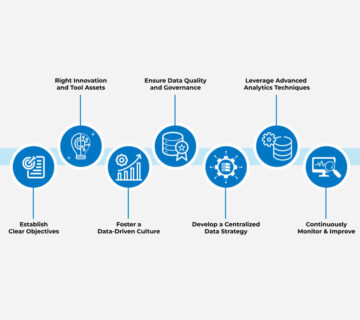
Critical Alert: Cisco Zero-Day Vulnerability Targeted by Chinese APT
Cisco Zero-Day, Server SupportJuly 26, 2024Cisco, a leading global provider of networking and cybersecurity solutions, has recently disclosed a severe zero-day vulnerability affecting its products. This vulnerability is actively being exploited by a sophisticated Chinese Advanced Persistent Threat (APT) group. The exploit’s nature and the urgency of Cisco’s response underline the critical need for organizations to understand, address, and mitigate this security threat.
...Read More

Boosting Analytics: 7 Steps for Data-Driven Success
BlogJuly 25, 2024The ability to harness and interpret data effectively is crucial for organizations striving to maintain an edge. Data-driven decision-making not only enhances operational efficiency but also drives innovation and growth. To achieve this, organizations must implement robust analytics strategies. Here are seven essential steps to boost analytics and drive success. ...Read More

WordPress Strengthens Security to Combat Plugin Attacks
Software Development, Wordpress, Wordpress WebsiteJuly 24, 2024WordPress, a dominant content management system (CMS) powering millions of websites, has taken decisive steps to address a recent wave of plugin attacks. These attacks, characterized by their sophisticated nature and significant potential impact, have prompted WordPress to implement stringent security measures. The platform’s proactive approach aims to safeguard both developers and users from future vulnerabilities. ...Read More

How the CrowdStrike Incident is Shaping Risk Management Services and Business Continuity in 2024
Business Continuity, risk managementJuly 24, 2024How the CrowdStrike Incident is Shaping Risk Management Services and Business Continuity in 2024 The cybersecurity landscape is constantly changing, with new threats emerging that challenge the security ...Read More

Heritage Foundation Data Breach: Personal Data Exposed Online
Cyber Security, Data Breach, malwarebytesJuly 23, 2024Heritage Foundation Data Breach Exposes Personal Data Online: A Wake-Up Call for Cybersecurity Measures In a significant breach incident, the Heritage Foundation has confirmed that cybercriminals gained access ...Read More